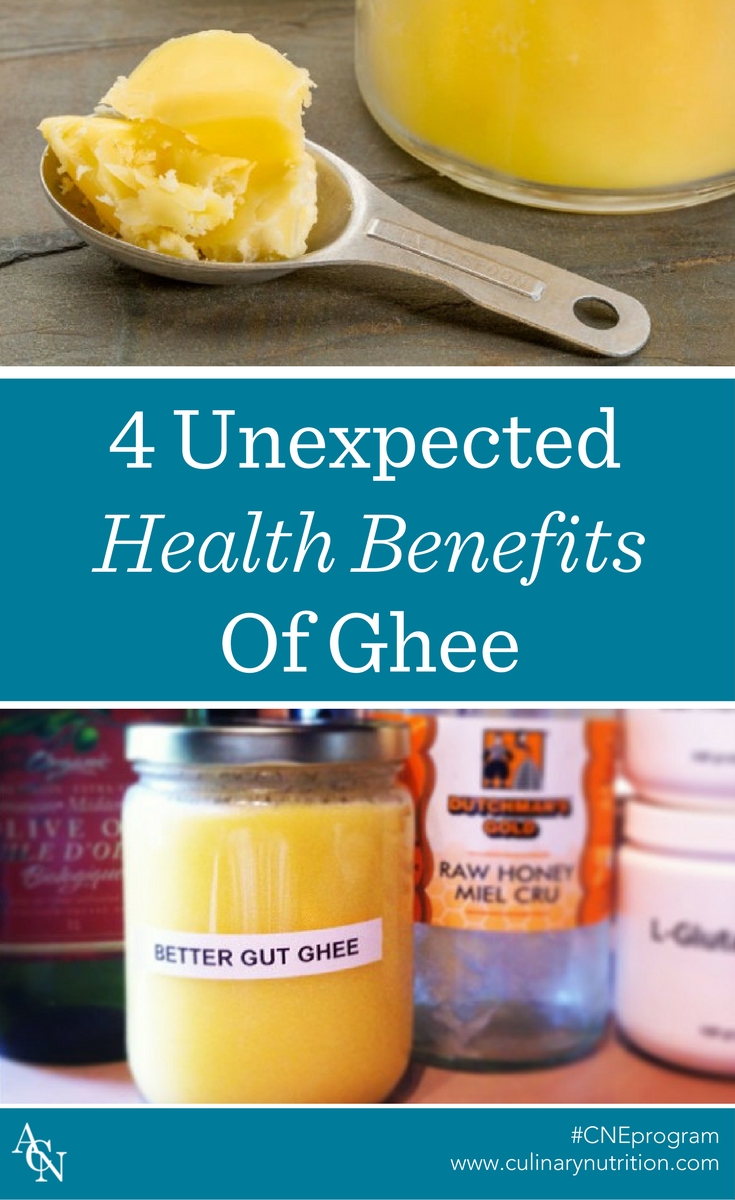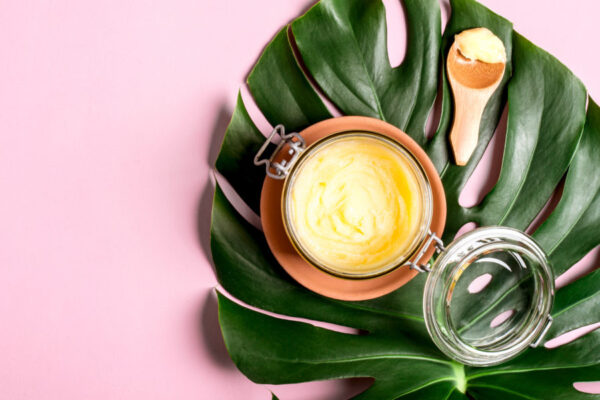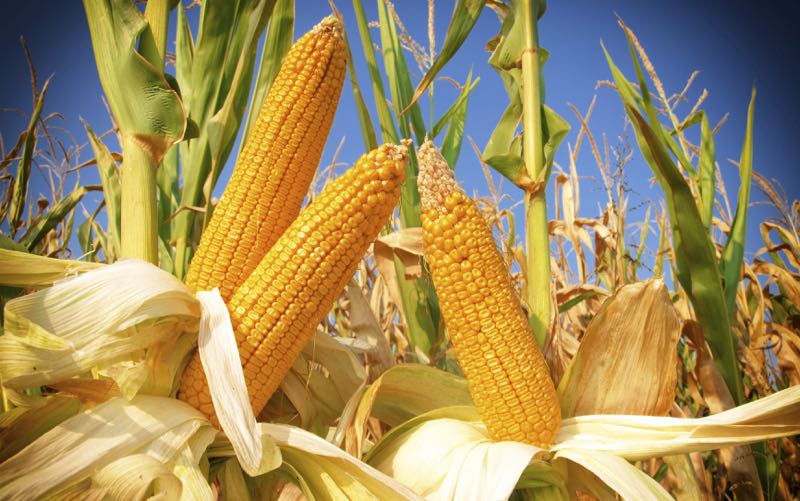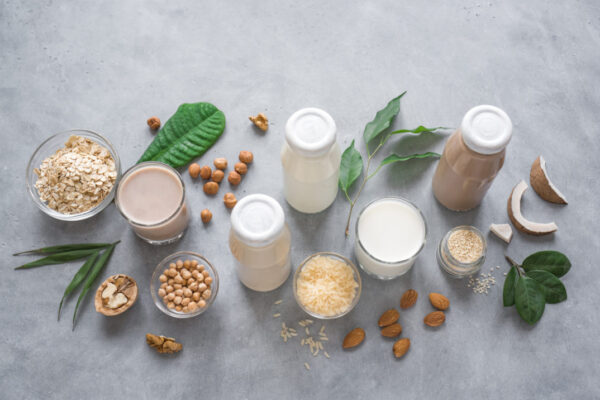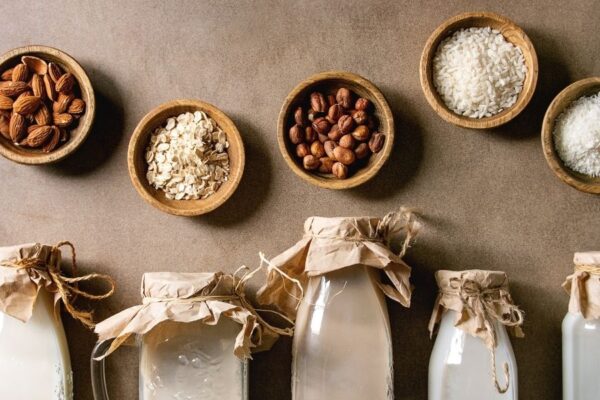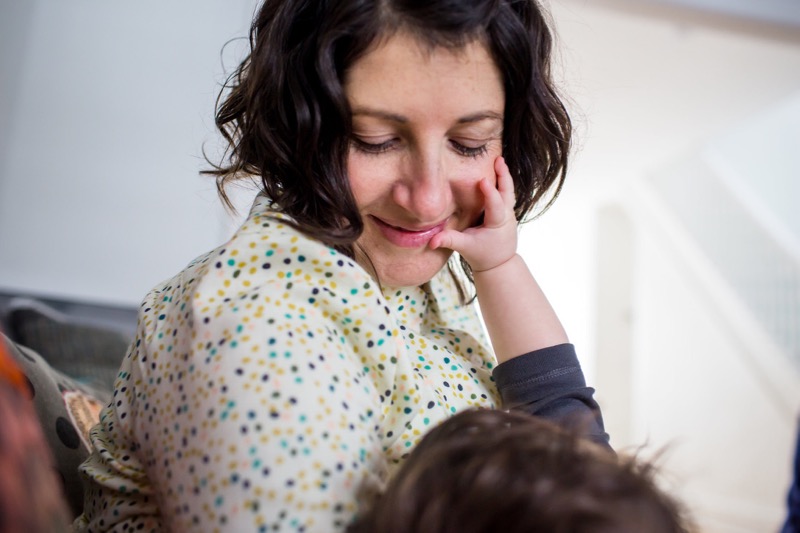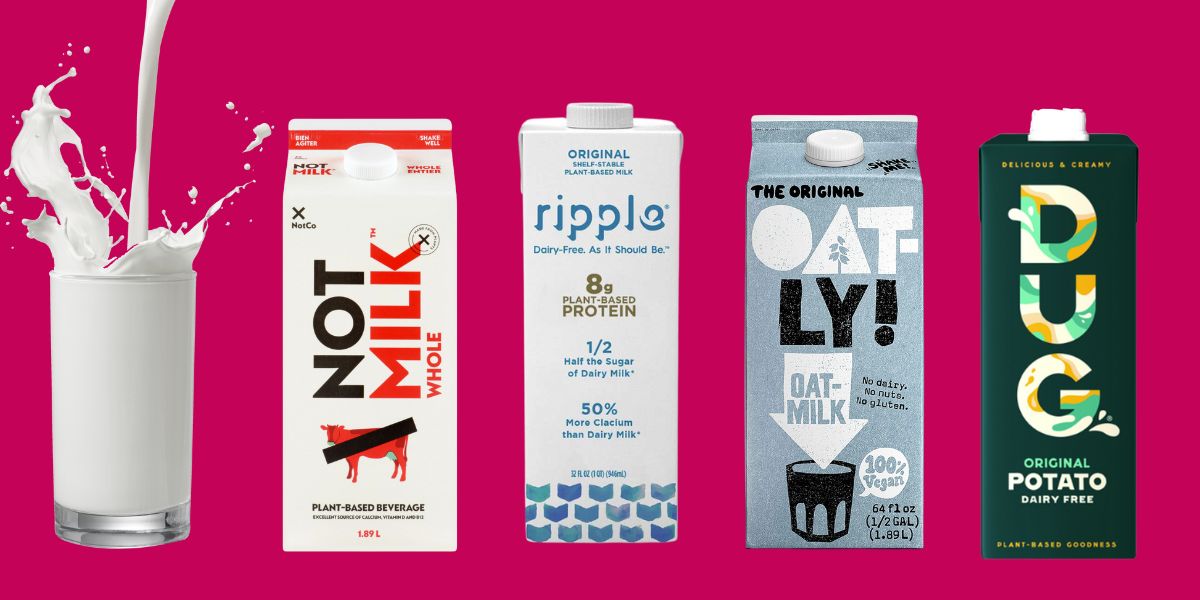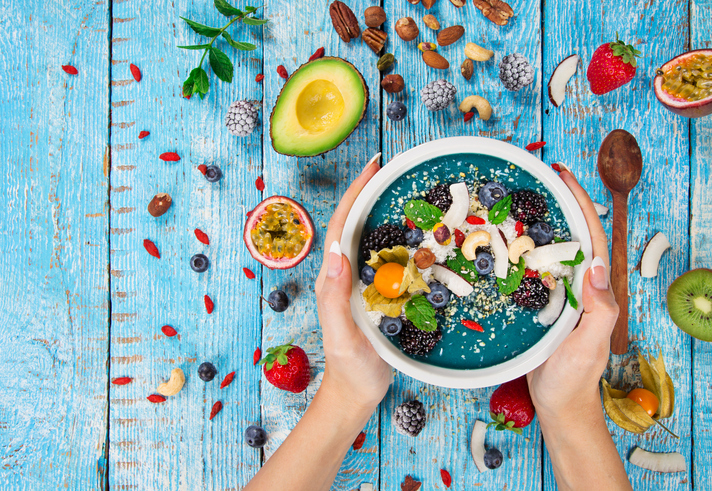How To Make Ghee At Home and Delicious Health Benefits
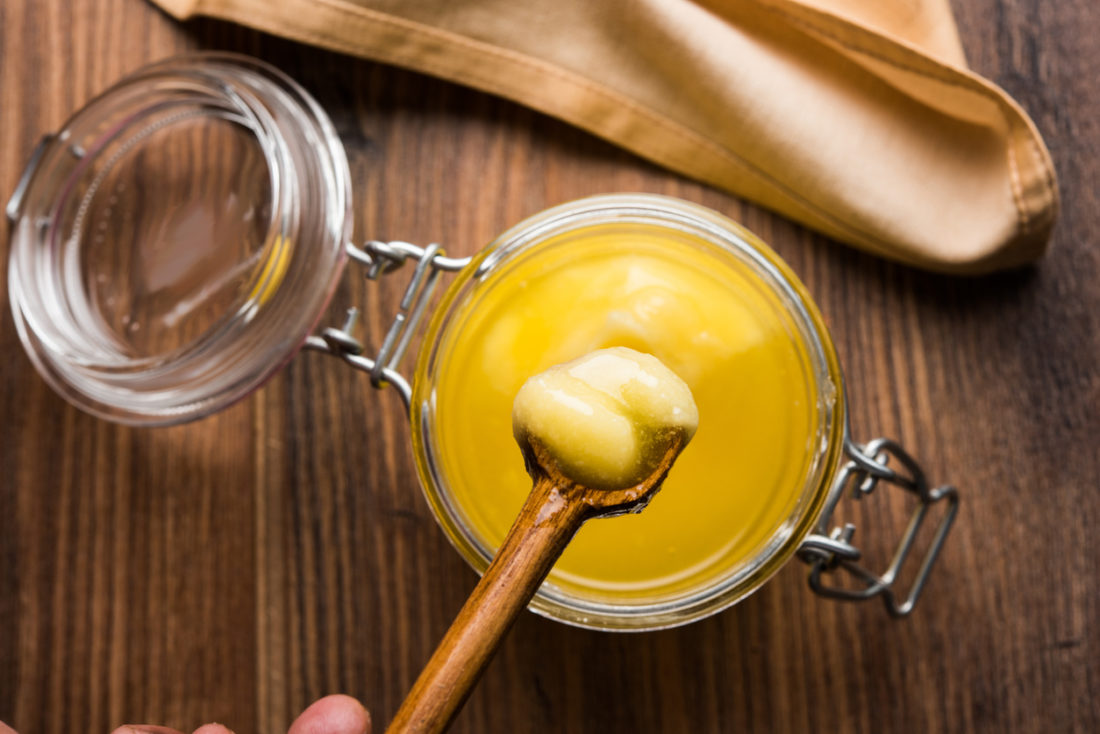
Traditional foods are making an overwhelming comeback and for a good reason – they have incredible health benefits and have been used for hundreds and even thousands of years in human history. One increasingly popular traditional food is ghee, or clarified butter, which is nutrient-rich and free of milk proteins, making it a good option for those with dairy intolerances.
What Is Ghee?
A staple in traditional Indian cooking and Ayurvedic medicine, ghee is made through a simple process of boiling butter and then pouring off the butterfat, eliminating the proteins (casein and whey) and the milk solids (which includes lactose). What’s left is also known as clarified butter.
Much like butter, ghee has gotten a bad reputation over the past 30 years due to its high saturated fat content. But research has revealed that instead of increasing the risk of heart disease, ghee actually decreases it — and that’s not the only trick it has up its sleeve. Ghee made from grass-fed butter is packed with vitamins A, D, E and K, as well as fatty acids CLA and butyric acid, leading to some interesting health benefits.
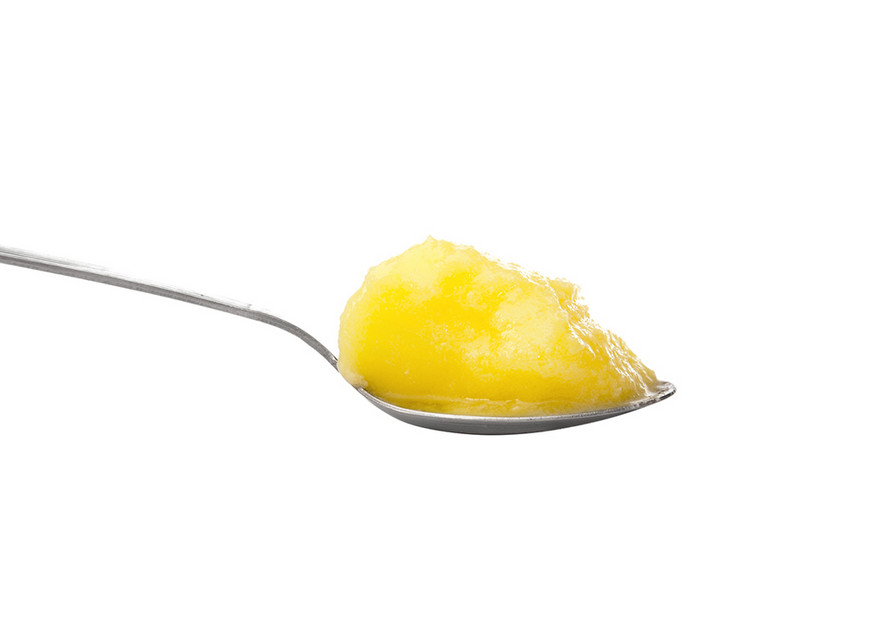
Get your FREE Step-By-Step Guide to Making Ghee plus 35 more free resource guides!
Fill out the form below for instant access.
Free Resource Library
Enjoy more than 40 downloadable guides, recipes, and resources.
Health Benefits of Ghee
1. Ghee can reduce your risk of heart disease.
Despite the bad press it has received over the years, ghee may actually be protective against heart disease. Ghee is rich in conjugated linoleic acid, or CLA, a fatty acid known to be protective against carcinogens, artery plaque and diabetes. Because of these benefits, researchers say ghee can potentially be used to help prevent cardiovascular diseases.
One unfortunate result of the war on saturated fats has been the replacement of traditional foods with highly processed alternatives. One study points to the increase in consumption of vegetable ghee, which contains up to 40 per cent trans fatty acids, for the increase in cardiovascular disease amongst Indians. A study on a rural population in India showed that men who ate higher amounts of traditional ghee had lower incidences of heart disease than those who ate less of it.
2. Ghee can help you make beautiful babies.
If you’re planning on trying to conceive anytime soon, vitamin K2 is an important nutrient to incorporate into your diet. According to the Weston A. Price Foundation, vitamin K2 plays a crucial role in facial and dental development. Children born to mothers with high levels of vitamin K2 are more likely to have wide, symmetrical faces with plenty of room for straight, healthy teeth later on. Grass-fed ghee is a great source of vitamin K2, making it an important food for pre-conception and pregnancy.
3. Ghee can help heal your digestive tract.
Good digestion is the key to good health, and if you’re dealing with any sort of digestive issues, healing your gut lining is an important first step. Ghee is rich in butyric acid, a short-chain fatty acid that nourishes the cells of the intestines. According to Phyllis A. Balch, author of Prescription for Nutritional Healing, butyric acid is “a monounsaturated fatty acid [that] reduces inflammatory conditions, reduces seepage of undigested food particles, and aids in repair of the mucosal wall.”
4. Ghee may be able to help you lose weight.
Remember our good friend CLA? On top of its cardiovascular benefits, it’s also been shown to help prevent weight gain and aid in weight loss. According to one study, CLA supplementation in overweight participants showed significant weight loss over a six month period. Further study is needed, but if you’re hoping to shed pounds, replacing rancid, highly processed vegetable oils with grass-fed ghee may be a good place to start.
How to Use Ghee
There are a multitude of ways you can incorporate ghee into your diet:
- Add ghee to your dairy-free elixirs.
- Use it as a healthy cooking oil for high-heat cooking like stir-frying, sauteeing or roasting.
- Spread it on your gluten-free bread, crackers, muffins or other baked goods.
- Incorporate ghee into this hemp chocolate spread (it’s great with ghee, or with a mix of coconut oil and ghee).
- Substitute ghee in any recipe where you’d normally use butter (baking, mac and cheese, popcorn, sandwiches, gluten-free toast, etc.).
- Melt it over steamed vegetables.
- Add it to savory or sweet oatmeal/porridge.
- Boost flavour of gluten-free grains by cooking them with some ghee.
- Use ghee in natural beauty care recipes.
- Eat it off the spoon!
How to Store Ghee
Since the milk solids have been removed, ghee is shelf-stable at room temperature (after all, there wasn’t refrigeration for most of our history). You can keep ghee in the pantry and it should stay good for months, unless you introduce extra moisture or ingredients – for example, spreading jam on your gluten-free toast and then dipping the same knife into the ghee, or swallowing a spoonful and then going back for more with the same spoon.
If you use ghee sparingly and won’t get through it in a few months to a year, or don’t want to worry about ‘double-dipping’, you can store your ghee in the fridge. It will firm up in cooler temperatures, but will soften if you take it out of the fridge a half an hour or so before you want to enjoy it.
Image: subodhsathe
Free Resource Library
Enjoy more than 40 downloadable guides, recipes, and resources.















